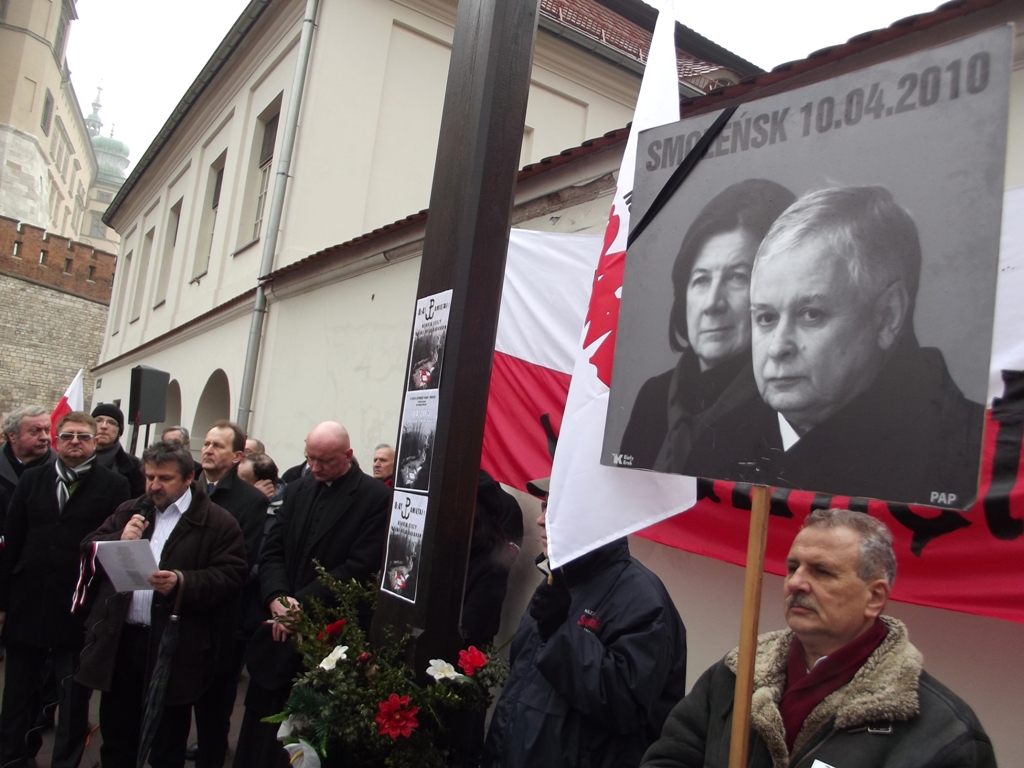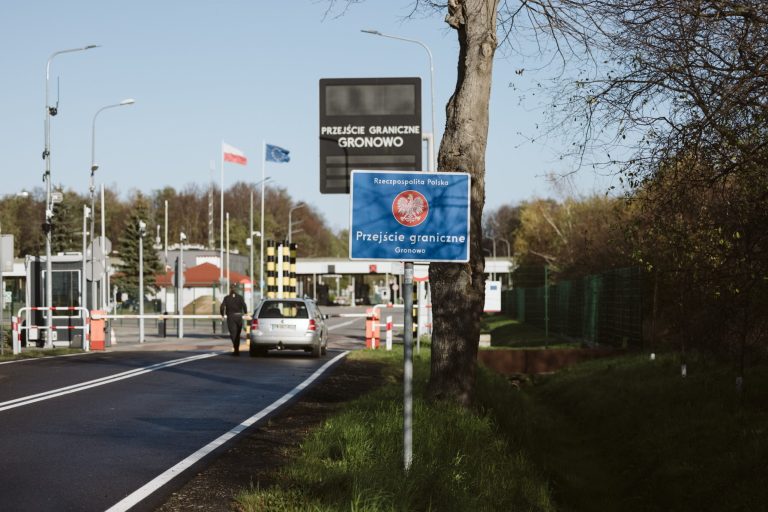Polish Supreme Court overturns conviction of Tusk aide in relation to Smolensk crash

Poland’s Supreme Court has overturned the sentences of two officials – one of whom was Donald Tusk’s chief of staff – convicted of failing to fulfil their duties in relation to the organisation of the 2010 flight to Smolensk that crashed, resulting in the death of President Lech Kaczyński and 95 others.
The court found that the case must be retried because of there could be legitimate doubts over the objectivity of judges who had previously ruled on it, two of whom were linked to the overhaul of the judiciary carried out by the former Law and Justice (PiS) government.
Katastrofa smoleńska. SN uchylił wyrok skazujący Arabskiego za organizację lotów#wieszwięcej #Smoleńsk https://t.co/Y16vTgDK7o
— tvp.info 🇵🇱 (@tvp_info) December 12, 2023
In June 2019, a court found two former employees of Tusk’s prime ministerial official – his chief of staff Tomasz Arabski and a woman named only as Monika B. under Polish privacy law – guilty of failing to fulfil their duties in organising flights for the prime minister and president to Smolensk on 7 and 10 April 2010.
The second of these flights, which was carrying many high-ranking state officials, including Lech Kaczyński and his wife, to commemorate the anniversary of the Katyń massacre, crashed. All passengers and crew died, in what is Poland’s greatest ever peace-time tragedy.
The issue has also become a political flashpoint, with Kaczyński’s identical twin brother, Jarosław, who is chairman of PiS, regularly suggesting that the crash was not – as official investigations found – an accident but was caused deliberately, with Tusk’s government either colluding or helping cover it up.
After coming to power in 2015, the PiS government launched new investigations into Smolensk. However, despite spending eight years and tens of millions of zloty on those inquiries, it still has not presented any conclusive evidence proving its claims.
Smolensk was an “attack decided at the highest level of the Kremlin”, says Jarosław Kaczyński ahead of the 12th anniversary of the crash.
Donald Tusk’s government then “covered up” the incident as part of a “macabre reconciliation with Russia”, he adds https://t.co/5ae0gHJj3B
— Notes from Poland 🇵🇱 (@notesfrompoland) April 4, 2022
Arabski was sentenced to ten months in imprisonment, suspended for two years, and Monika B. was received six months’ imprisonment, suspended for one year. Three other accused officials – one from the prime minister’s office and two from the Polish embassy in Moscow – were acquitted.
In June 2021, Warsaw’s court of appeal upheld the penalties imposed on Arabski and Monika B. and all of the acquittals. However, the two convicted officials requested that the Supreme Court annul those rulings.
They argued that two of the three appeals court judges had been nominated by the National Council of the Judiciary (KRS) after it was overhauled by PiS to give politicians more influence over it and that one of them holds an important position in the disciplinary system for judges created under PiS.
A number of Polish and European courts have found the KRS to have been rendered illegitimate by PiS’s reforms and the disciplinary system for judges to be part of efforts to exert political control over the judiciary.
Polish judicial reforms that introduced a tough new disciplinary system for judges violated European law, the EU Court of Justice has found.
The ruling ends a long-running case that has seen Poland fined over half a billion euros https://t.co/Sl9hZGwbAh
— Notes from Poland 🇵🇱 (@notesfrompoland) June 5, 2023
On Tuesday, the Supreme Court upheld Arabski and Monika B.’s complaint, finding that their case had been heard by an “unduly staffed” panel of judges.
“In itself, the appointment of a judge with the participation of the new KRS does not yet cause a court to be unduly staffed,” said judge Małgorzata Wąsek-Wiaderek in the oral justification of the Supreme Court judgment, reported the Polish Press Agency (PAP).
“But if this is accompanied by other circumstances indicative of the judge’s actions or acceptance of certain jobs from the executive, which may cause such justified doubts in an outside observer, then we are dealing with an unduly staffed court,” she added.
“Defendants and plaintiff have the right to have their case resolved by a court in which an objective observer will not be able to form any doubts that perhaps the judge was guided by something else,” concluded Wąsek-Wiaderek.
To jest anarchia. Anarchia antydemokratyczna i łamiąca zasady konstytucji. Owoc totalności opozycji, jej sędziowskich sojuszników, ale i uległości naszego obozu. Zgody na to by kwestionować obowiązujące prawo. Teraz ekipa Tuska będzie udawać, że „przywracają” praworządność, aby… https://t.co/SVxz2B825D
— Sebastian Kaleta (@sjkaleta) December 12, 2023
Sebastian Kaleta, who served as a deputy justice minister in the PiS government, criticised the verdict, calling it “anti-democratic anarchy in breach of constitutional principles” brought about by “the opposition and its judicial allies”.
In a further twist, the ruling came just as Tusk was returning to his role as prime minister, after PiS lost its parliamentary majority in October’s elections.
Tusk and his government – who have pledged to reverse PiS’s judicial reforms – were sworn into office on Wednesday morning.
Poland’s new government, led by @donaldtusk, has been sworn into office by President @AndrzejDuda.
„We come from different political camps but I am open to cooperation,” said the president, who was an ally of the conservative former government https://t.co/OBCQ5XJgwW
— Notes from Poland 🇵🇱 (@notesfrompoland) December 13, 2023
Main image credit: Piotr Drabik / flickr.com (under CC BY 2.0 DEED)
Alicja Ptak is senior editor at Notes from Poland and a multimedia journalist. She previously worked for Reuters.






